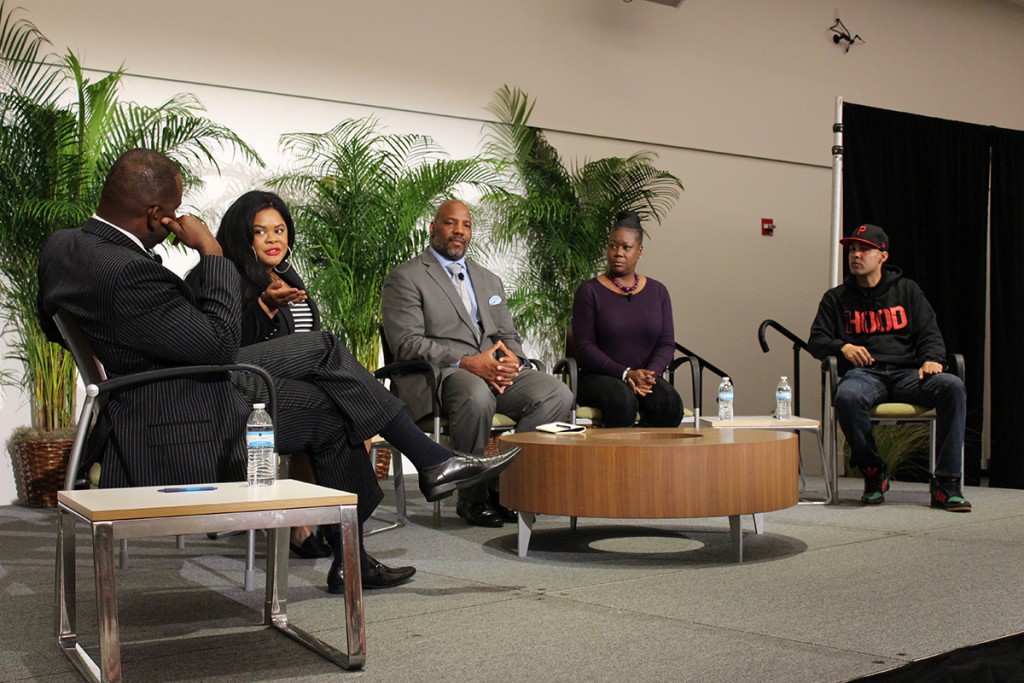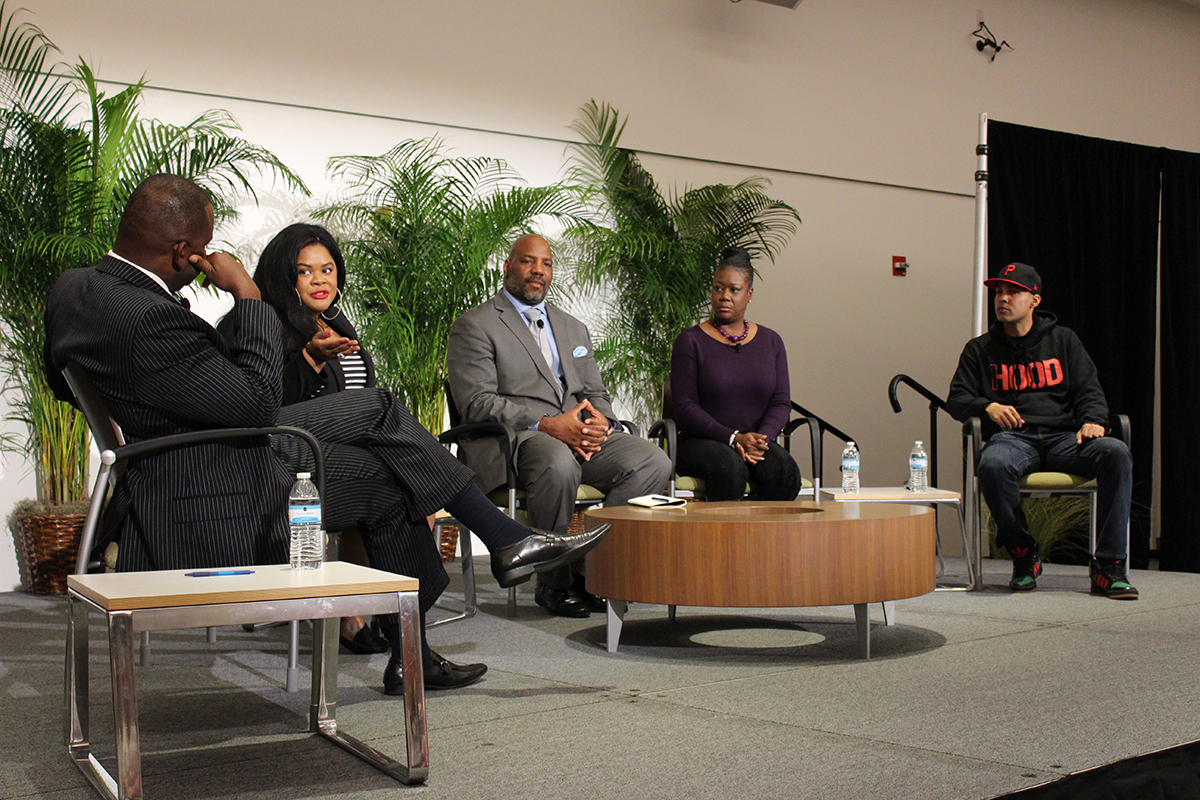
A panel of four activists including Sybrina Fulton, the mother of the late Trayvon Martin, convened on Wednesday night in the Student Activities Center’s grand ballroom for “Know Justice, Know Peace,” a symposium on race, justice and policing.
The symposium was sponsored by the University of Miami’s Africana Studies program and the Division of Student Affairs. It was hosted by Professor David Ikard, director of Africana Studies at UM.
On the panel was another professor, Jelani Cobb, associate professor of history at the University of Connecticut and contributor of The New Yorker. To his left, a young woman who rose to influence after posting live on social media from the Ferguson, Missouri riots in August last year, Johnetta Elzie.
To the furthest right was Jasiri X, a hip-hop artist and activist who performed a song he wrote in the style of beat poetry at the end of the discussion.
Professor Ikard began the discussion by recalling the backlash to the “BlackLivesMatter” hashtag.
“Why [do] we get this kind of a response whenever we try to single out certain kind of experiences of a black oppression in this country?” Ikard asked.
This question brought up the theme of white supremacy, which was a common thread throughout the entire discussion.
“When we start talking about the specifics of our circumstance…the instinctive reaction has always been to say that this is somehow another taking something from white people,” Cobb said.
Black Lives Matter was not meant to say black lives have more value than any other group, but to highlight the unique plight of black men and women, Cobb said.
“The fact of the matter is that white lives have not been devalued,” Cobb said. “You don’t have a constitutional clause that says white people should be considered three-fifths of a human being.”
The discussion converged with Fulton’s thoughts on how to properly train the police force to not discriminate and emerged with one hot-button issue: dealing with “black rage.”
“By simply being black—especially by being a man of color—all of a sudden, you see me as enraged even when I’m calm,” X said. “We should be allowed the same range of human emotion as everyone else.”
Another prominent question was whether or not to express disagreement with law enforcement if they are violating rights. An emphatic Fulton pressed the same point each time: make it home alive.
Fulton’s son, 17-year-old Trayvon Martin, was fatally shot by community watch captain George Zimmerman in Sanford, Florida in February 2012. Martin had been visiting his father and was walking home at night when Zimmerman allegedly chased him and shot him. After a complex trial and 16 hours of deliberation, George Zimmerman was found not guilty in July 2013.
“You have to know what your rights are but at the same time, you have to make it home to tell your side of the story,” Fulton said. “…We had to listen to the person who murdered my son to tell us what happened at the scene.”
Cobb, although agreeing with Fulton’s point, reminded the audience how the faces of the civil rights movement were those who caused a disturbance. Now they are considered revolutionaries; but in their time, they were considered a threat.
Martin Luther King Jr.’s father tried to discourage him from going back to Montgomery, Alabama ; Rosa Parks was called a Communist for going against segregation; Ida B. Wells was called a prostitute when she spoke against lynching.
“The people who we think are respectable are only respectable in hindsight,” Cobb said.
Other topics ranged from the racist Sigma Alpha Epsilon fraternity chant at The University of Oklahoma to sources of inspiration for the black community and what the university can do to expand the viewpoint of its students.
“I think people accept and acknowledge what they want to acknowledge,” Fulton said. “Don’t just absorb what the school is teaching you…step out of that box and learn a little more.”
After answering questions from the audience, the panelists listened to X perform one of his songs that he wrote after Zimmerman’s not guilty verdict. Powerful references to slavery, lynching and white supremacy created vivid imagery while X filled the room with just his voice.
Still, racism is not just an outdated mindset from the times of slavery, according to freshman Stephanie Mills. Mills, who participated in the Black Lives Matter rally last semester, recalled feeling marginalized while in college.
“You get pushed off to the side, like, ‘Oh, you’re only here because of Affirmative Action,’” Mills said.
For Mills, an exercise physiology major, this type of hurtful generalization only began to impact her when she moved back to the United States three years ago. For most of her life, she lived in other countries. Most recently, she lived in Korea, where the people identify you as “Korean or not Korean, and that’s it.”
“Sometimes you feel like nothing’s going to change, so it’s good to be reminded that every single person has an effect,” Mills said.
Her effect is on her family, she said. Pursuing higher education sets her as a role model for her younger siblings and cousins.
“It shows them that these are your options: you can go to college, you can be successful, [and] you just have to work hard,” Mills said.
Freddy Michaud, a junior biomedical engineering major, said he joined student organization Brothers Overcoming Negativity and Destruction to create the same hope for others.
Despite being pulled over by law enforcement several times this semester, Michaud saw each time as an opportunity to change the preconceptions about black men.
“It’s about improving the views people have of minority males,” Michaud said.






